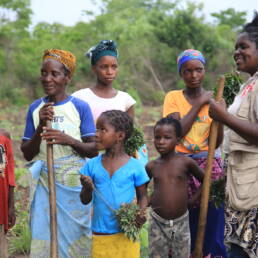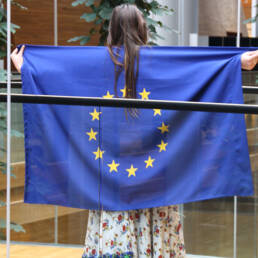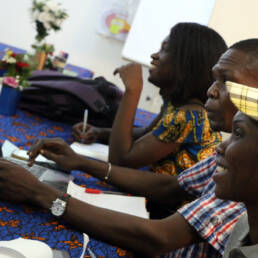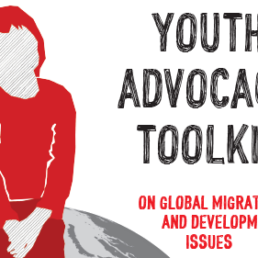Author
Leticia Lozano
Communication Officer
Caritas Europa
“We need policy-makers that are willing to stand up and to be bold, to really make sure that migration is not only seen as a challenge but also as an opportunity for the sustainable development of all”, was the call made by Davide Gnes, Caritas Europa Policy and Advocacy Officer, during the launch of the Common Home publication at the European Parliament yesterday.
The launch of this publication, the last one of a series of 12 on migration and development, was framed by a multi-stakeholder panel discussion.
“This debate is taking place at a crucial time”, said Shannon Pfohman, Caritas Europa Policy and Advocacy Director, at the beginning of the discussion, which she moderated. She said that a hostile environment towards migrants in the European Union continues despite a decrease in arrivals.
Common Home: migration and development in Europe and beyond, is the result of 2 years of research and is based on the findings of 11 national Common Home publications, and on the analysis of European and international statistical databases and literature.

The publication shows that migration and international development are more closely linked than it is commonly believed. It showcases the positive contributions of migrants to countries of origin and of destination, and the importance of sustainable international development. It concludes with 27 specific recommendations to policymakers.
The publication aims precisely at promoting a more balanced and evidence-based debate, fulfilling a need stated during the debate by Camilla Hagstrom, Deputy Head of Unit (Unit B3, Migration and Employment) at the European Commissions’ Directorate General for Development and Cooperation (DG DEVCO).
We need to have a factual debate on migration, not one based on perception”,
said Camilla Hagstrom, during her intervention.
The event was co-hosted by the Members of the European Parliament (MEPs) Juan Fernando López Aguilar (S&D, Spain), LIBE Committee Chair; and Erik Marquardt (Greens, Germany), DEVE Committee Vice-Chair.
MEP López Aguilar emphasized that “migration is not a threat to European identity”.
The Executive Secretary of Caritas Ghana, Samuel Zan Akologo, was in Brussels to present the views of the Global South in the discussion. He stated the historic and positive nature of migration and highlighted that most people migrating in Africa are moving within the continent and not to Europe.
Africa is a productive partner and relations with Europe must be on equal footing”,
said Samuel Zan Akologo, Caritas Ghana Executive Secretary.
Anna Knoll, Head of Migration Programme at the European Centre for Development Policy Management (ECDPM), talked about the ongoing Multiannual Financial Framework (MFF) negotiations, which will determine the amount and kind of EU spending on migration and development in 2021-2017.
She said that at the moment the discussion around migration is still using “security-focused language” and that “a restrictive approach dominates the negotiation”.

As a conclusion, MEP Marquardt underlined the limited role that parliamentarians have on migration topics: “There’s lack of democracy, lack of transparency and lack of scrutiny in all of the migration control aspects. This is a big problem that I would love to have an improvement on in the next 5 years”.
The Common Home series of 12 publications was produced in the frame of the MIND project, which received financial support of the DEAR programme of the European Union. Caritas Europa and 11 national Caritas organisation in EU countries are part of the MIND project.












